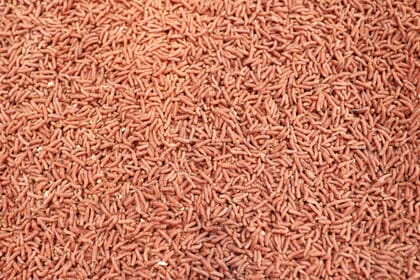Organised by the International Platform of Insects for Food and Feed (IPIFF) the event emphasised the role insects for food and feed could play in answering global societal challenges and highlighted the opportunities opened under the EU policy and legislative framework to maximize this potential.

More than 250 delegates took part in the IPIFF 2017 International Conference, including EU Commissioner for Health & Food Safety, Vytenis Andriukaitis, European Parliament and Estonian Presidency representatives, as well as delegates ranging from insect producers, policy makers, scientists, NGOs and agri-food industry, who recalled the potential lying in insects for food and feed. Furthermore, the event raised awareness about the opportunities for insect producers in a European context.
Introducing the conference, IPIFF President Antoine Hubert indicated: “Two recent EU policy reforms have largely contributed to the development of our sector: this is notably the case of the recent EU authorisation to use insect proteins for fish feed which constituted a decisive step for European insect producers to deploy their production activities at wider industrial scale and offered new solutions for the European aquaculture sector”.
Looking ahead, IPIFF expressed the willingness to pursue its efforts towards widening the possible use of insect proteins by EU livestock and aquaculture farmers: "our association pleads for extending the use of insect proteins in feed for pigs and poultry. We are also interested in exploring potential alternative substrates for insect farming in the future," stated IPIFF Vice President Tarique Arsiwalla.
“Opportunities are notably opened in the context of ongoing EU discussions on Circular Economy and of EU-funded research programmes: we encourage the uptake of these opportunities to maximize the potential of the insect sector,” he added.
The event also shed light on several projects undertaken by IPIFF, in the areas of food and feed safety. Notably, IPIFF members are engaged in the development of a guidance paper documenting best hygienic practices in insect production as well as in a compilation of studies demonstrating the safety of insects for human consumption. IPIFF is also working jointly with insect producers’ associations associations in South-East Asia, North America and Africa to further profile these subjects collectively at international level.
“We trust that these works should be helpful for insect producers to conform with applicable legislations (within EU or worldwide) or to influence market standards: food and feed safety are a must and prerequisite conditions to the opening of new doors,” concluded Hubert.


